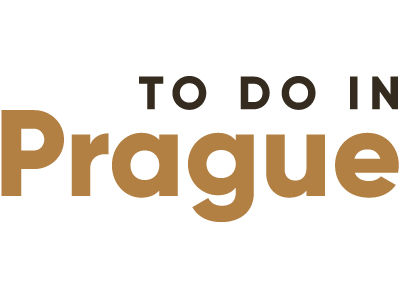What Languages are Spoken in Prague?
What is the language spoken in Prague and the Czech Republic?
Czechs speak Czech 😉 or Český as it is pronounced here. Český is a Slavic language, spoken by 10 million people and is very closely related to Slovak (most Czechs and Slovaks can speak to each other in their native tongue and understand each other), and similar to other Slavic languages such as Polish, Russian and many Balkan languages.
Czech is considered by most linguist and language learners and lovers to be a very difficult language to master for many reasons. Czech verbs are conjugated depending on the subject, as is typical in many languages such as French and Spanish, but in addition, each noun can be declined in 7 different forms in the singular form and 7 in the plural. Top that off with the fact that there are masculine, feminine and neutral nouns, each of which is declined differently, and you’re faced with a lot of different endings to nouns.
And of course, if you aren’t from these parts, the pronunciation can be very difficult, especially when having to account for all of the accents which can make one seemingly same word take on two different meanings depending on the placement of a singular accent mark on one letter.
Do they speak English in Prague?
You might feel overwhelmed after reading the section above that Czech is a difficult language. But you should not fear if you are coming to Prague for a short trip. Prague in particular is very international and has a high number of foreigners living, working and vacationing in the capital city at any one time. Most Czechs under the age of 40 received years of English in their grade schools up to university level and those that live in Prague tend to feel fairly confident using English in their daily lives. Nearly anyone you would come across on a daily basis when touring around Prague will have a very good command of the language and even pedestrians on the streets are able to assist the occasionally lost tourist to get to their hotel, the Charles Bridge or the Prague Castle without any problem.
Hotels, restaurants and most tour providers employ people who are proficient in English and mostly likely another language, so guests will rarely be unable to communicate their needs when enjoying a few days or a week in Prague.
If you are traveling outside of Prague for a day or more, then you might want to learn a few words and have maps ready as it is much less common that those in smaller Czech cities and villages will have a working knowledge of English. Those 40 and up were taught Russian during their public education through the era of communism. So if you find yourself with someone 40+ and you speak some Russian, you might have some luck trying your hand with Russian.
What Language is Spoken in Prague:

Learn some Czech before you travel:
- Prosím (pro-seem) = Please; Here you are; You’re welcome
- Děkuju (dyeh-kooyoo) = Thank you
- Ano (ah-noh) = Yes. (can be shortened to ‘no’ or ‘jo’ or ‘jo-jo’).
- Ne (neh) = No.
- Dobrý den (dob-ree den) = Hello, Good afternoon.
- Nashledanou (nus-hle-dah-no) Good bye.
- Ahoj (ah-hoy) = Hi. or Bye. Čau(ciao) is also used.
- Kde je toaleta? (kdeh yeh toh-ah-le-ta) Where is the bathroom?
- Kolik to stojí? (koh-leek toh stoh-yee) How much is it?
- Co je to? (tso yeh toh) What is it?
More about what language is spoken in Prague:
The Czech National Revival:
The Czech National Revival was the Czech Renaissance, during which time there was a rebirth for the Czech culture and language, which brought new-found appreciation and pride to the Czech people in the 18th and 19th centuries. It also called attention to the language and national identity of the Czech people after having been under Germanic rule for so many years. Some of the most important figures during this period of history were František Palacký (one of the fathers of the Czech nation), Josef Dobrovský and Josef Jungmann.
Dobrovský published a Czech grammar book in 1809. This was instrumental in solidifying the Czech language for future generations.
Several decades later Jungmann published the five-volume Czech-German dictionary. This was a incredible literary feat, involving 5 volumes, published over 5 years. His work was composed of vocabulary from various sources as well as from other Slavic languages, and the use of neologisms, which is the creation of new words.
His brilliant works were published by a Czech publishing house and cultural institution and a branch of the National Museum, Matice česká. The institution had been created by František Palacký in 1831 as a branch of the National Museum. He himself was instrumental in restoring and preserving many Czech historical works and was also known for his political activism during his lifetime.
Due to the incredible work and effort of these men, institutions and so many more, the Czech language, culture and identity grew and blossomed. They were given importance and acknowledgement throughout Europe and brought much pride to its people. Since that time, Czech has been the official language in what is now the Czech Republic.
Important Information: Prague is located in the Schengen Zone, which is a free-travel zone within the European Union. It includes 26 countries in total. Depending on where you are coming from, you might need to secure a visa for the Schengen Zone before visiting the Czech Republic. Please be sure to consider this fact before making plans to visit Prague so that you do not experience any problems upon arrival. Also be be aware that the Czech Republic uses the Czech Korona (czk) rather than the euro since we are not in the eurozone. We look forward to your visit!

